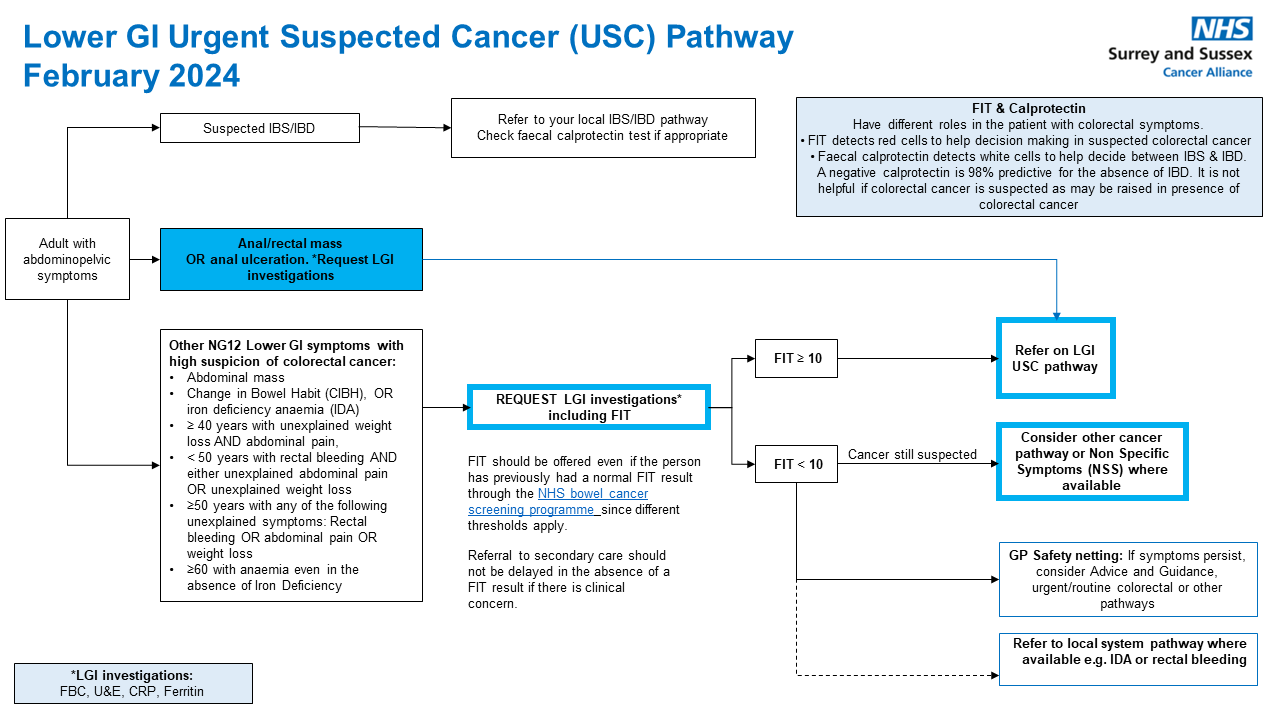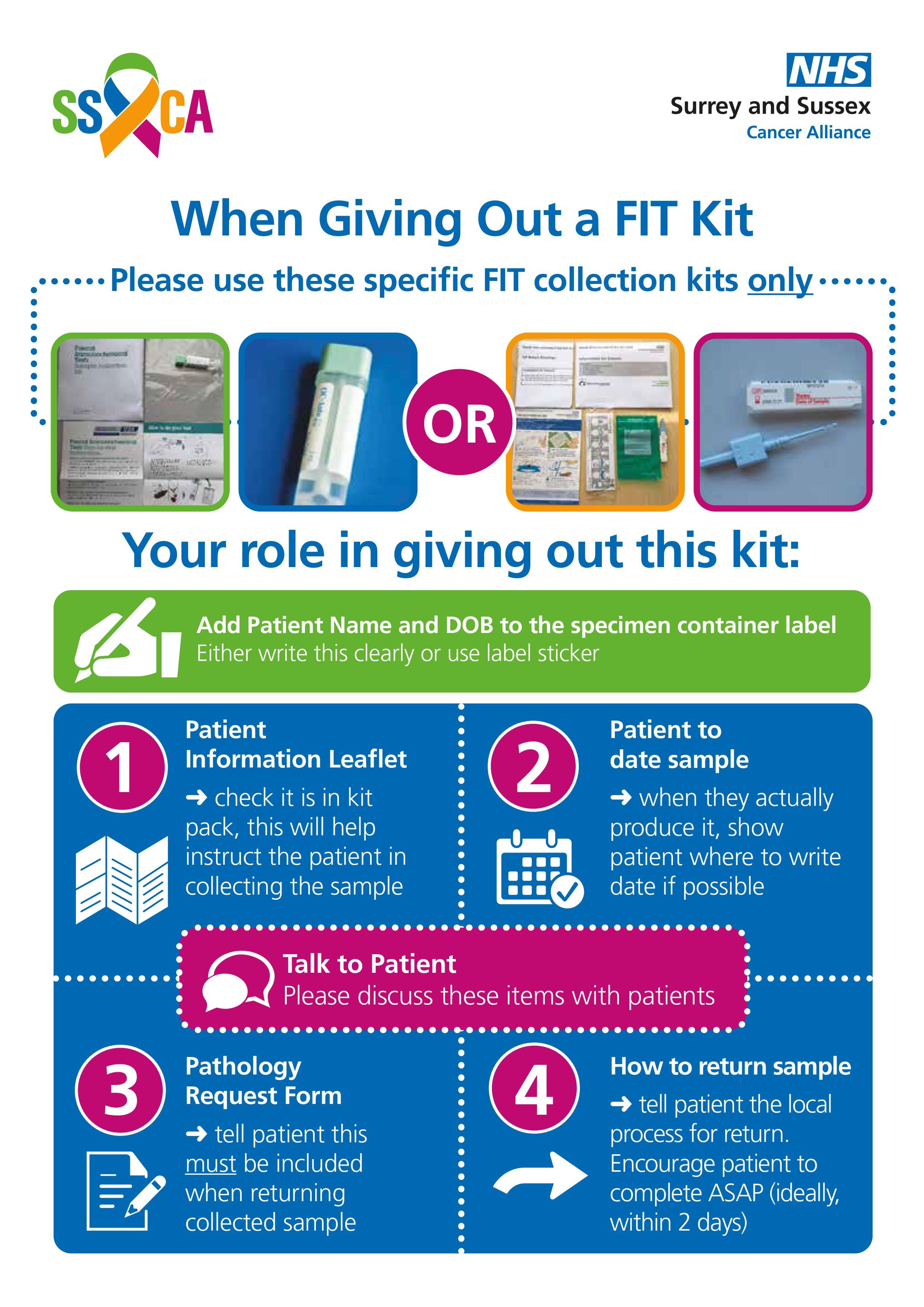The Faecal Immunochemical Test (FIT) is an important test in helping to improve the diagnosis of colorectal cancer.
On this page you will find:
- a FIT toolkit of resources to support primary care teams in the management of symptomatic patients
- a FIT poster to be displayed where FIT kits are handed to patients
- The FIT dashboard to support primary care networks to monitor FIT utilisation for urgent suspected lower GI referrals.
- a recording of our primary care webinar `Getting to the bottom of FIT' held in June 2023
- recordings of our primary care webinar `Are your systems fit for FIT' held in September 2023 for administration teams
- FIT FAQs
The PCN FIT Investment and Impact Fund Dashboard
The FIT IIF dashboard has been designed to support primary care networks within the Surrey and Sussex Cancer Alliance area to monitor FIT utilisation for urgent suspected lower GI referrals.
Use the dashboard to:
- Monitor the proportion of lower GI referrals accompanied with a FIT result by GP practice, Primary Care Network, or Integrated Care System.
- Identify areas which need support
- Share best practice
Find the FIT dashboard here: PCN FIT IIF Dashboard
The data in the FIT dashboard will be updated monthly. It is important to use the correct codes when uploading patient information to your GP practice system.
![]()
FIT FAQs for primary care
These FAQs have been developed based on themes and questions raised during a series of primary care webinars on FIT that took place in June 2023. Click on the link below to view.



